Monitoring Behavior
Monitoring your cat’s eating patterns and behavior can help your veterinarian determine if your cat is a picky eater — or if there’s a cause for concern.
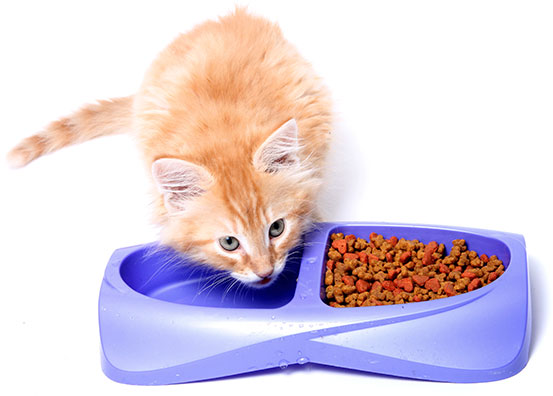
What should I watch for?
Become familiar with the actual amount of food commonly eaten by your cat in a 24-hour period and discuss this with your veterinarian during your annual exam to ensure your cat’s nutritional requirements are being met.
Also watch for significant changes in drinking behavior. Remember, cats can drink water from different places throughout the home (such as their water bowl, a glass on the nightstand, or directly from the bathroom faucet).
Other important signs your cat may be sick can include:
- Vomiting
- Blood in your cat’s urine
- Coughing
- Diarrhea
- Fever
- Not using the litter box
- Increase or decrease in urination
- Increased vocalization
- Lethargy
- Over grooming
- Poor coat condition
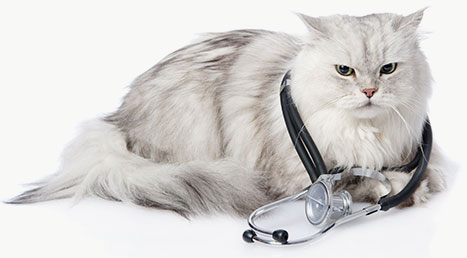
When should I take my cat to the veterinarian?
When an adult cat hasn’t eaten in more than 24 hours — or just 12 hours for kittens younger than 6 weeks old — it is a cause for concern. Make an appointment with your veterinarian immediately if this occurs.
If you suspect you have a picky cat, download and fill out this behavior log to help monitor your cat’s eating patterns and behavior. You can use the log to provide your veterinarian with important information if you need to make an appointment.
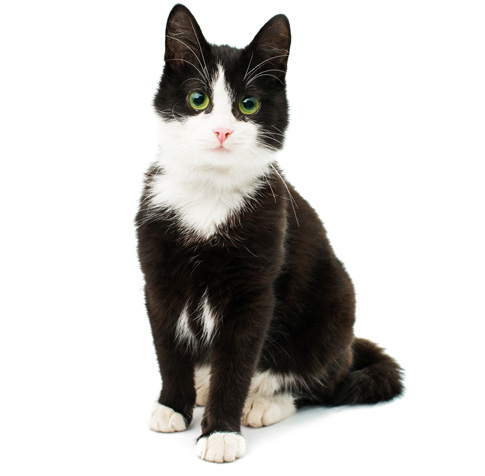
How do I assess my cat's body condition?
Regular assessments by your veterinarian can help monitor weight changes. Your vet may evaluate both body condition score (BCS) evaluations and muscle condition score (MCS). A BCS is the pet version of a human Body Mass Index (BMI). It’s a measurement to help identify ideal body weight. In some veterinary practices, BCS is combined with an MCS for more accurate measurements.
Muscle loss often is found only after the veterinarian physically examines the cat. For example, obese cats may have significant muscle loss that is overlooked due to the presence of adipose tissue, or fat. Animals can have significant muscle loss even if they are overweight. Healthy cats consuming fewer calories are able to burn fat. On the other hand, sick cats are more likely to use muscle and lean body mass as the primary source of fuel.
Try to keep cats at their ideal weight. Over time, chronically underweight cats can have a reduced lifespan. Being underweight puts cats at risk for damage to internal organs and increased susceptibility to infections.
Your veterinarian will help you determine the ideal weight for your cat and develop a plan to help you keep him there.
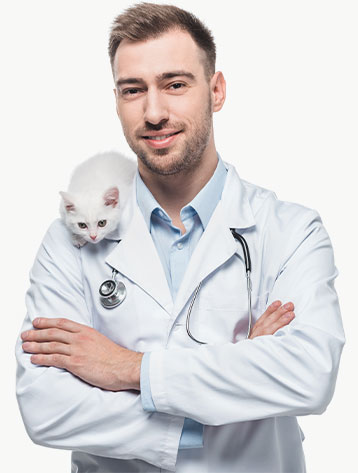
Can I do this at home?
At-home monitoring can help determine when to take your cat to the vet, but your veterinarian is the best judge of proper body and muscle condition. In between veterinary visits, you can learn how to perform a BCS at home and check your pet about once a month to determine if there are changes.
- Too thin: Lightly run your fingers over your knuckles as you make a fist. If you imagine those knuckles were your cat’s ribs, this would be too thin.
- Normal body condition: Turn your hand over, palm down, and feel over your knuckles. When your pet’s ribs feel like this, it’s just right.
- Too heavy: Put your palm up, fingers extended facing the ceiling. Run your fingers over the base of your fingers — this is too heavy.
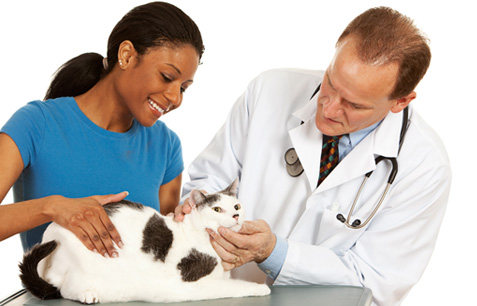
What information should I give my veterinarian?
If you suspect your cat has lost body or muscle condition, visit your veterinarian. Download and complete this document to provide important information to your veterinarian about your cat’s eating patterns and behavior.
Picky or Sick?
If your cat’s not eating, it could be a sign of a serious health issue. Take this 5-question quiz to help determine when it’s time to take your cat to the veterinarian.
Start QuizDisclaimer: This information is not intended to replace discussions with an animal medical professional. Discuss behaviorial and medical concerns with your veterinarian.
Content references can be made available upon inquiry. This site is intended for US residents only.

Share this Quiz